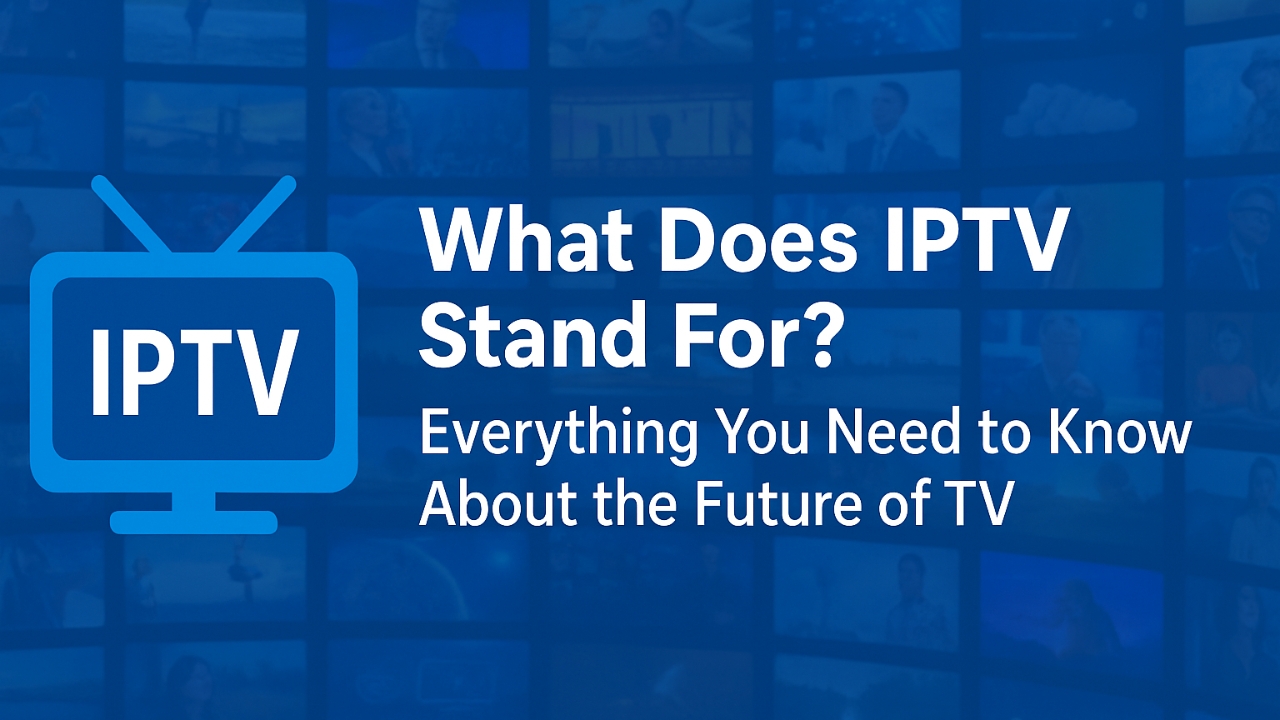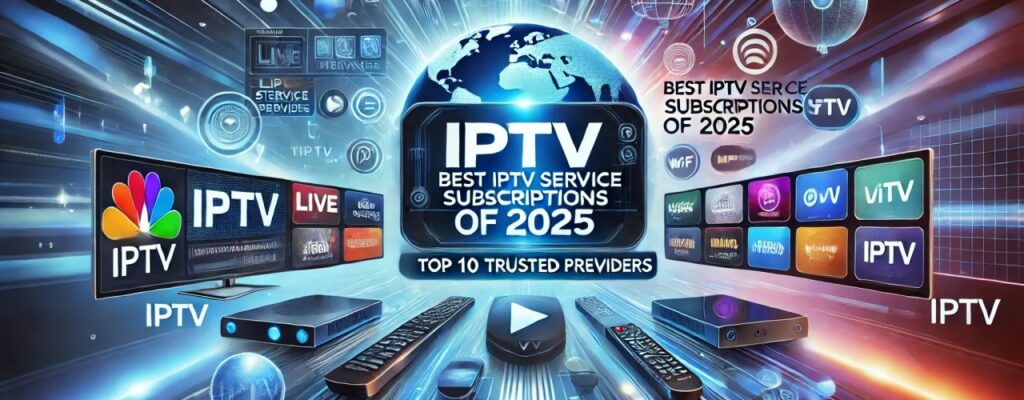
In today’s fast-evolving digital age, the question, “What does IPTV stand for?” has become increasingly relevant. IPTV stands for Internet Protocol Television, a revolutionary broadcasting method that delivers television content over internet protocols rather than traditional terrestrial, satellite, or cable formats. As consumers shift towards more flexible and internet-based solutions, IPTV is undoubtedly becoming the Future of TV.
Whether you’re streaming your favorite shows on a smart TV, tablet, or phone, you’ve likely experienced the benefits of IPTV without even realizing it. This technology has not only modernized how we watch TV, but it has also expanded our access to content globally, giving viewers the power to choose what, when, and how they want to watch. In this guide, we’ll break down exactly what IPTV is, how it works, and why it’s set to shape the future of television for years to come.
IPTV stands for Internet Protocol Television. In simple terms, it refers to the process of delivering TV programs and videos using the internet rather than traditional broadcast methods. It leverages the same protocol used by your browser to load a website or stream a video from YouTube—except in this case, it’s being used to transmit live channels, on-demand content, and more.
The “Internet Protocol” part is essential—it’s the set of rules that allow devices to communicate over a network. IPTV uses this protocol to send television content to your device in data packets, ensuring high-speed, high-quality streaming.
Understanding the basic operation of IPTV helps you see why it’s becoming the go-to choice for millions:
IPTV providers acquire TV shows, live broadcasts, and movies from production studios, satellite feeds, or content partners.
The acquired content is then digitized, compressed, and formatted for internet delivery using video codecs like H.264 or H.265.
Encoded content is stored or streamed live through high-speed IPTV servers, which handle the distribution to end users.
Through Content Delivery Networks (CDNs), the content is routed via high-speed internet to your device—be it a smart TV, PC, mobile phone, or tablet.
Using apps like IPTV Smarters Pro, Perfect Player, or even custom portals, users can navigate channels, VOD libraries, and EPGs (electronic program guides).

There are three main formats in which IPTV is typically delivered:
Watch real-time broadcasts of news, sports, or TV shows, just like traditional cable TV—but with the flexibility of the internet.
Also known as catch-up TV, this allows you to watch previously aired content at your convenience.
Choose from thousands of movies, series, or special programs and watch them anytime—perfect for binge-watchers!
IPTV allows users to curate their content preferences, set favorites, and avoid unnecessary ads.
Viewers can stream on smart TVs, computers, smartphones, and even game consoles, anytime and anywhere.
Many IPTV services are available for a fraction of the cost of cable subscriptions, making it a budget-friendly option.
With IPTV, geography no longer limits your entertainment. You can access international channels and multilingual content from anywhere in the world.
Electronic Program Guides, cloud DVR, multi-screen support, parental controls, and subtitles all enhance the user experience.
Not all IPTV services are created equal. Legitimate IPTV providers operate with content licenses and permissions. However, there are also many unverified services. It’s best to opt for verified providers to ensure both legality and quality.
Additionally, using a VPN can protect your streaming activity and personal data, especially when accessing international content.
IPTV stands for Internet Protocol Television, a method of delivering television content over the Internet.
Unlike cable/satellite, IPTV uses the internet to stream live TV, on-demand shows, and more, offering more flexibility and access.
No, IPTV can be used on smartphones, tablets, computers, and streaming devices like Firestick and Android TV Box.
Yes, as long as you’re using a legitimate, licensed IPTV provider.
IPTV offers live channels, news, sports, and an extensive VOD library, whereas Netflix and YouTube have limited scope.
IPTV is no longer a niche technology. It’s transforming traditional broadcasting and aligning perfectly with the habits of modern Today’s Viewers who crave flexibility, personalization, and affordability.
By understanding what IPTV stands for, you’re better equipped to make informed choices about your entertainment. Whether you’re cutting the cord, traveling abroad, or just seeking better value, IPTV has a lot to offer.
With evolving technologies, better internet infrastructure, and the rise of smart devices, IPTV is truly the Future of TV. It blends convenience, variety, and cost savings in a way that traditional television just can’t match.